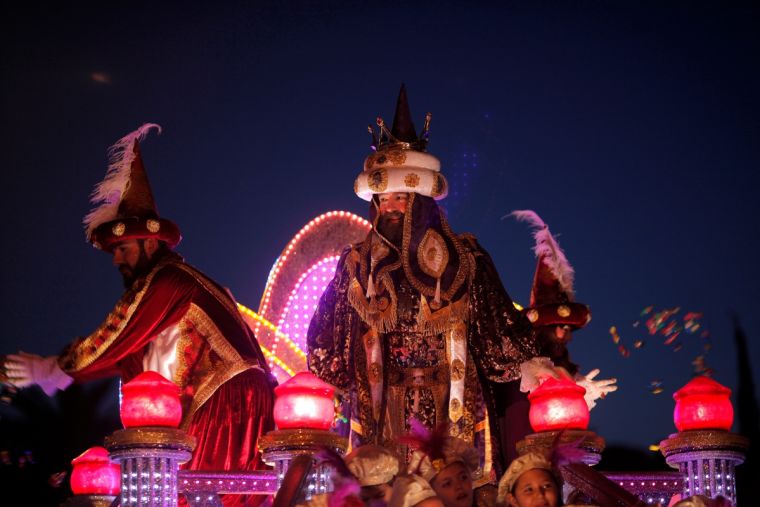Epiphany: Why the journey of the Magi is all about mission
This Saturday will mark the Christian feast of Epiphany, a world-wide Church celebration that particularly recalls the tale of the Magi who visited the infant Christ. Though easily imagined as a familiar part of the Christmas story, the wise men are more radical than we think: their story is all about mission – one that turns the world upside down.
In the liturgical calendar Epiphany follows the twelfth day of Christmas and largely focuses on the visit of the Magi to Christ as told in Matthew 2. The word epiphaneia means 'manifestation' or 'appearance' and celebrates the incarnation of God in Jesus Christ.
The tale of the wise men makes for colourful, enthusiastic re-enactment across the world, and in school nativity plays is ripe for the traditional dramatic treatment. But an over-familiarity with the story can dull audiences to its significance. At its heart lies a radical message about mission, a shocking challenge to its original 1st-century audience.

In the Gospel of Matthew, the Magi or 'wise men' represent the Gentiles, 'the nations', those who were not part of God's chosen people, Israel, and therefore outside of God's specific blessing. It was not that the Hebrew Bible showed no openness or generosity to those outside the Jewish nation, but a sharp identity distinction between Jew and Gentile remained. When God's Messiah (his chosen king) would come, he would come to restore the children of Israel.
That Matthew, whose audience was predominantly Jewish, then narrates that the first visitors to Christ were Magi 'from the East' is therefore a dramatic development. Not only do they visit, but they bring their gifts, worship him as true king, and subsequently reject the demands of the genocidal King Herod. One king is displaced by another.
In contrast of course, we see it is the Jewish religious elite of the day who oppose the adult Jesus, not bowing down in humility but jealously plotting his demise. They mock his claim to kingship. The Gentiles see what the religious leaders miss.
This thread is present throughout Matthew's story. In chapter 8, Christ applauds the faith of a Gentile centurion, saying: 'Truly I tell you, I have not found anyone in Israel with such great faith. I say to you that many will come from the east and the west, and will take their places at the feast with Abraham, Isaac and Jacob in the kingdom of heaven. But the subjects of the kingdom will be thrown outside, into the darkness, where there will be weeping and gnashing of teeth' (Matthew 8: 10-12).
There is profound news for those considered 'outsiders' (like the Canaanite woman in Matthew 15: 21-28) – they are welcomed in. And those convinced they're 'in', the heavyweights of the religious regime – they might just be thrown out. In the Magi we see the beginning of Jesus' upside-down kingdom, where the first shall be last, and the last, first.
It's a theme of both radical upheaval and (literally) magisterial mission. God is proved not to be the God of one nation, but of the entire world, one who reaches out to all. In this way he fulfils the promise to Abraham that through him 'all nations will be blessed' (Genesis 12:3). As Jesus tells his followers at the close of Matthew's Gospel: 'Therefore go and make disciples of all nations...' (Matthew 28:19). God it seems, from first to last, is a missionary God.
The story remains radical because God's people easily forget his prodigal generosity, choosing instead a small god who only serves the religious status quo. It's a valuable reminder, an epiphany even, that in the humble infancy of Christ we glimpse God's grand purposes for the world – plans that might not go the way we think.
You can follow @JosephHartropp on Twitter











